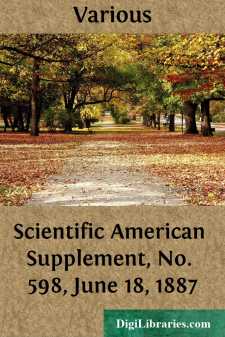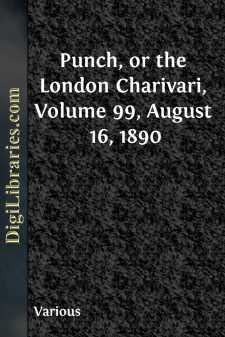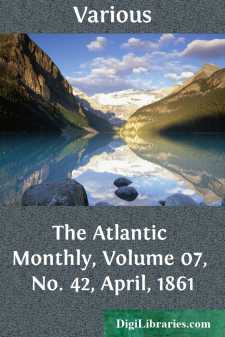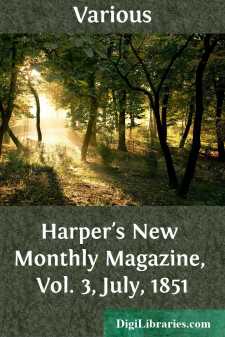Categories
- Antiques & Collectibles 13
- Architecture 36
- Art 48
- Bibles 22
- Biography & Autobiography 813
- Body, Mind & Spirit 142
- Business & Economics 28
- Children's Books 17
- Children's Fiction 14
- Computers 4
- Cooking 94
- Crafts & Hobbies 4
- Drama 346
- Education 46
- Family & Relationships 57
- Fiction 11829
- Games 19
- Gardening 17
- Health & Fitness 34
- History 1377
- House & Home 1
- Humor 147
- Juvenile Fiction 1873
- Juvenile Nonfiction 202
- Language Arts & Disciplines 88
- Law 16
- Literary Collections 686
- Literary Criticism 179
- Mathematics 13
- Medical 41
- Music 40
- Nature 179
- Non-Classifiable 1768
- Performing Arts 7
- Periodicals 1453
- Philosophy 64
- Photography 2
- Poetry 896
- Political Science 203
- Psychology 42
- Reference 154
- Religion 513
- Science 126
- Self-Help 84
- Social Science 81
- Sports & Recreation 34
- Study Aids 3
- Technology & Engineering 59
- Transportation 23
- Travel 463
- True Crime 29
Sort by:
by:
Various
IF I WERE A FAIRY.If I were a fairy slight and small,Say, about as tallAs a span-worm forming the letter O,What do you think I would do? I know!In the bell of the lily I'd rock and swing,Twitter and sing;And, taking the gold-dust under me,I'd splash the hips of the buzzing bee,That he might have meal to make his bread,With honey spread,For his thousand babies all in rows,Each in a bandbox up...
more...
by:
Various
THE IDEAL TENDENCY. We are all interested in Art; yet few of us have taken pains to justify the delight we feel in it. No philosophy can win us away from Shakspeare, Plato, Angelo, Beethoven, Goethe, Phidias,—from the masters of sculpture, painting, music, and metaphor. Their truth is larger than any other,—too large to be stated directly and lodged in systems, theories, definitions, or formulas....
more...
by:
Various
TRADE REPORT. (FROM OUR OWN REPORTER.) The market has been in a most extraordinary state all the morning. Our first advices informed us that feathers were getting very heavy, and that lead was a great deal brisker than usual. In the fish-market, flounders were not so flat as they had been, and, to the surprise of every one, were coming round rapidly. The deliveries of tallow were very numerous, and...
more...
by:
Various
THE HAVRE MARITIME EXHIBITION. The Havre Maritime Exhibition opened on the 7th of May. Will this exhibition awaken general interest, or will it prove a local affair simply? This is a secret of the weeks that are to follow. Should nothing chance to discourage the general interest that surrounds Havre, to dampen the enthusiasm of the public, or to act to the prejudice of the exhibitors, whose very...
more...
by:
Various
A CRIMINAL TYPE. To-day I am MAKing aN inno6£vation. as you mayalready have gessed, I am typlng this article myself Zz½lnstead of writing it, The idea is to save time and exvBKpense, also to demonstyap demonBTrike= =damn, to demonstratO that I can type /ust as well as any blessedgirl 1f I give my mInd to iT"" Typlng while you compose is realy extraoraordinarrily easy, though composing...
more...
by:
Various
MODERN TYPES. (By Mr. Punch's own Type Writer.) No. XVII.—THE SPURIOUS SPORTSMAN. There is in sport, as in Society, a class of men who aspire perpetually towards something as perpetually elusive, which appears to them, rightly or wrongly, to be higher and nobler than their actual selves. But whereas a man may be of and in Society, without effort, by the mere accident of birth or wealth, in...
more...
by:
Various
APRIL DAYS. "Can trouble dwell with April days?" In Memoriam. In our methodical New England life, we still recognize some magic in summer. Most persons reluctantly resign themselves to being decently happy in June, at least. They accept June. They compliment its weather. They complained of the earlier months as cold, and so spent them in the city; and they will complain of the later months as...
more...
by:
Various
OUR NATIONAL ANNIVERSARY. BY BENSON J. LOSSING. ON the morning of a brilliant day in October, 1760, the heir apparent to the British throne and his groom of the stole, were riding on horseback near Kew Palace, on the banks of the Thames. The heir was George, son of the deceased Frederick, Prince of Wales; the groom was John Stuart, Earl of Bute, an impoverished descendant of an ancient Scottish...
more...
by:
Various
THE SCOTTISH NATIONAL RECORDS. The two principal causes of the loss of these records are, the abstraction of them by Edward I. in 1292, and the destruction of a great many others by the reformers in their religious zeal. It so happens that up to the time of King Robert Bruce, the history is not much to be depended on. A great many valuable papers connected with the ancient ecclesiastical state of...
more...
by:
Various
THE GREAT CREATURE. Mr. Horatio Fitzharding Fitzfunk was a tall young man, a thin young man, a pale young man, and, as some of his friends asserted, a decidedly knock-kneed young man. Moreover he was a young man belonging to and connected with the highly respectable firm of Messrs. Tims and Swindle, attorneys and bill-discounters, of Thavies’-inn, Holborn; from the which highly respectable firm Mr....
more...











